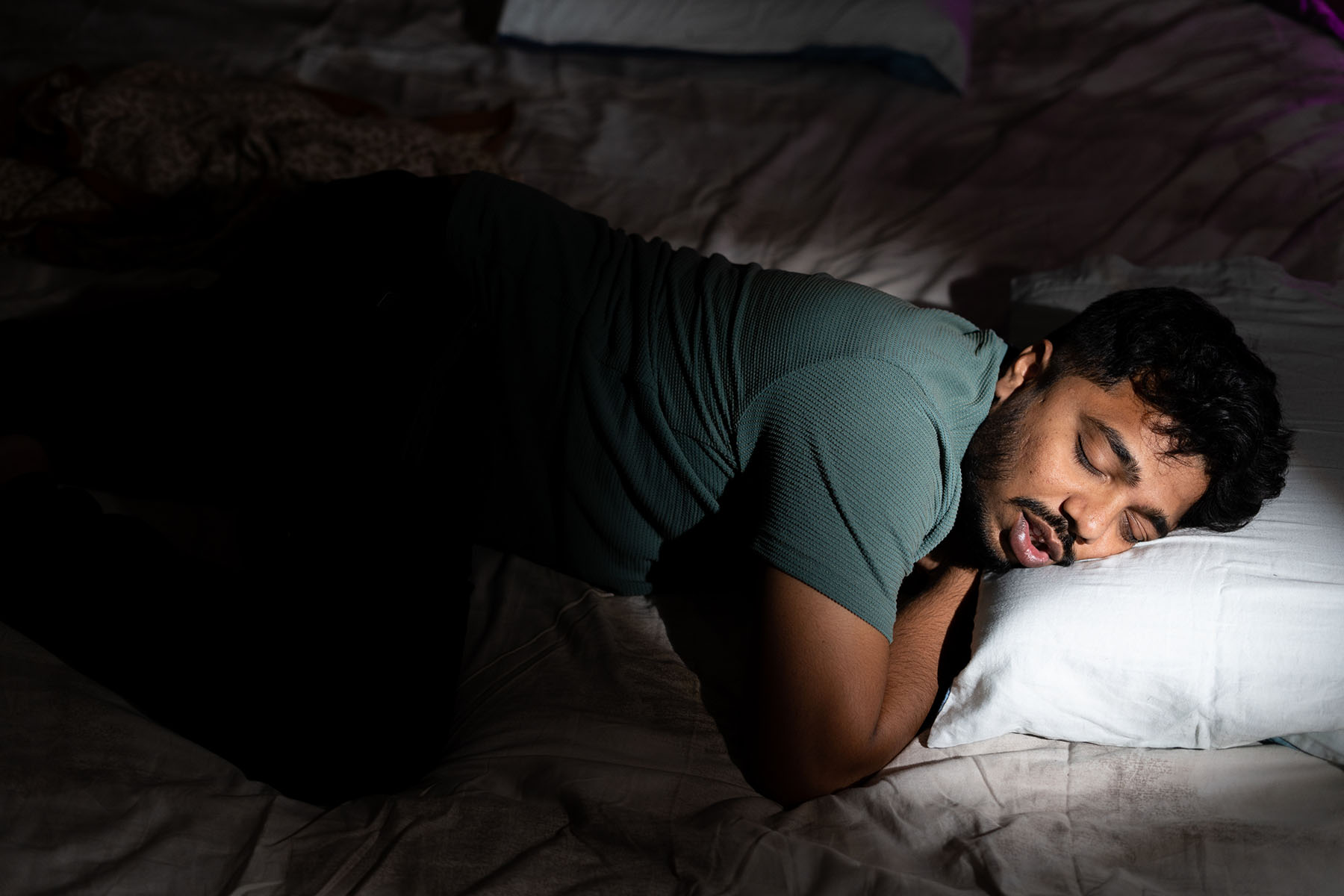Could Gamma-Aminobutyric Acid be a Sleep Aid?

We’ve all been there before. The lights are off, the sheets are cool, and only one thing is left to do — sleep. Yet, despite the perfect setting, you find yourself lying awake in the middle of the night, unable to go into that much-needed state of rest.
Here’s the part where many individuals might turn to sleep aids such as music, tea, and even the famous sleeping agent, melatonin. While these may be the go-to options, there’s another drug many are taking with the hope of similar benefits — gamma-aminobutyric acid (GABA).
“To put it plainly, GABA is a neurotransmitter that already exists in our central nervous system,” said Kori Ascher, D.O., a pulmonary, sleep, and critical care medicine physician at the University of Miami Health System. “GABA decreases brain activity that can lead to decreased anxiety and promote relaxation.”
This activity works in the advertiser’s favor by marketing GABA supplements as a mood enhancer, leading to lower blood pressure and weight loss. However, as Dr. Ascher confirms, these statements are not currently backed by the FDA.
How does GABA affect sleep?
GABA is still new on the scene when it comes to sleeping agents. Studies are ongoing, but just as with melatonin, it is not yet FDA-approved to treat insomnia.
“In my opinion, melatonin may be a bit safer since it is indicated in other sleep disorders,” Dr. Ascher said. “Unfortunately, neither melatonin nor GABA supplements are FDA regulated, so components of both supplements will vary greatly. There are also no head-to-head studies done comparing the two. If taken, symptomatic improvement will vary based on the individual.”
What’s the best remedy for sleep issues?
When it comes to issues with sleep patterns, Dr. Ascher recommends being evaluated by a physician, such as your primary care or a sleep physician, before taking any sleep supplements. Her approach to patients with insomnia is the industry standard — cognitive behavioral therapy for insomnia (CBT-I).
According to the Sleep Foundation, CBT-I explores the connection between how we think, what we do, and how we sleep. This therapy will require a few sessions in which a trained provider will help identify which thoughts, feelings, and behaviors contribute to insomnia symptoms.
CBT-I can now be done digitally via online courses and smartphone apps.
“Sleep is extremely multifactorial, with no magic pill or dietary supplement to meet all sleep needs,” Dr. Ascher added. “There are no side effects of CBT-I, as it’s extremely safe, healthy, and is a first-line treatment for chronic insomnia. CBT-I consistently produces improvement of insomnia symptoms and quality of sleep.”
If you are experiencing insomnia, don’t let it take over your life.
The University of Miami Health System has a team of sleep specialists and surgeons who are board-certified in adult and pediatric sleep medicine.
To schedule an appointment, call 305-243-9999 or request an appointment.
Joseph Garcia is a Communications Specialist at UHealth.
Tags: benefits of gaba, Dr. Kori Ascher, improving sleep, stress and anxiety
